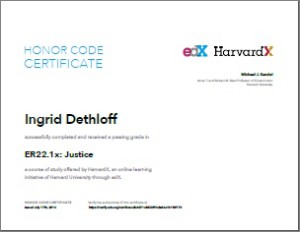Topic of this week is the „Learning Analytics Cycle“ and conducting some basic analytics with our test access to the Tableau software. The YouTube video from George Siemens about the Data/Analytics Cycle was very helpful, also the Google Hangout with Tony Hirst about „Data Wrangling“. I also attended the Google Hangout on Wednesday and I am very impressed by the commitment of the course facilitators – thank you!
My interpretation of the Learning Analytics Cycle consists of these steps:
1. Data collection, Data Acquisition and Storage (Data is generated by or about the learners: Sources can be LMS, Student information systems, Social Media… any interaction between Learner & Institution)
2. Dataset Cleaning (missing data, different spelling of names,…)
3. Analysis & Visualization
4. Action (Intervention, Optimization,… and back to the learners)
That means the process starts with the learners and ideally the cycle / loop closes with feedback of the intervention to the learners.
When we look at data, we can do counting, sorting and therefore get different sort of charts with the same data. As to interpretation, theses aspects are relevant: looking for outliers, looking for similarities and differences, looking for trends, looking for patterns & structure.
Certainly, you have to think about what you would like to know when you do the data collection and not only when you do the analytics & visualization.
My tests with the Tableau Software:
After having registered with Tableau a lot of times – at first to get a test version of the software (thankfully in this MOOC we get an extended test period), then to actually start it after installation and then even to get the video tutorials – I watched the „Getting started“ video (20 minutes) and was really impressed with the variety of functions.
As I don’t have a set of educational data which I could use for testing, I had to be somewhat creative to use a different kind of dataset for testing. At our University (and in Germany) we have very strict regulations for the use of user data and logfiles and so my example won’t have anything to do with educational data but with recreational data… But my goal at the moment was to play around with the Tableau Software in order to get used to working with table cells and rows and visualizations and I am satsified with my results:
I spent more time with the MOOC this week than I planned because it was fun and creating artifacts is really very time-consuming. I am looking forward to week 3 and hopefully, I’ll find the time to try Bazaar meetings.

